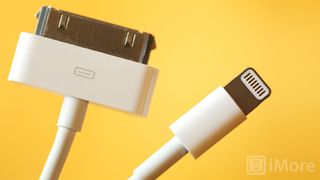Kickstarter-backed portable charger gets shut down due to Lightning connector restrictions

Edison Junior, a technology and design lab, has been forced to shut down their POP portable charging station campaign on Kickstarter after failing to get a license from Apple to use the new Lightning connector. The Edison Junior was designed to charge multiple devices on the go, with retractable cables so that users wouldn’t have to worry about bringing their own cables along with them. Apple refused to grant permission for Edison Junior to use a Lightning connector, in part because the POP also contained a micro-USB cable, for charging Android and other non-Apple devices. John Koetsier reports for VentureBeat
That’s a problem with Apple. In fact, even combining Apple’s new Lighting connector with the old 30-pin connector in a charging device was verboten; Apple would not approve, forcing the team to abandon the project.
Apple’s restrictions regarding Lightning accessories are much tighter than Apple’s past rules governing the 30-pin Dock connector. However, that's been known to accessory manufacturers since the introduction of the Lightning connector (iMore was one of the first to write about them in our iPhone 5 review back in September).
Yes, that sucks on a lot of levels for a lot of people, from small manufacturers to would-be customers of those manufacturers. But it's also a known quantity. The POP was announced before the introduction of the Lightning connector in September, but Edison Junior should have checked the restrictions on the connector before going ahead and adding it to the product. It’s also one thing to call Apple’s policies restrictive, but quite another to abandon the project and blame them for not making an exception when they have been clear on the rules from day one.
Edison Junior will be providing full refunds to the POP’s backers, as the current project has been scrapped. However, they are not abandoning the concept of a portable power station. Their redesigned concept still incorporates retractable micro-USB cables for non-Apple devices, while also having USB ports for Apple users with 30-pin or Lightning-to-USB connectors.
Source: VentureBeat
Master your iPhone in minutes
iMore offers spot-on advice and guidance from our team of experts, with decades of Apple device experience to lean on. Learn more with iMore!
Joseph Keller is the former Editor in Chief of iMore. An Apple user for almost 20 years, he spends his time learning the ins and outs of iOS and macOS, always finding ways of getting the most out of his iPhone, iPad, Apple Watch, and Mac.
Most Popular





